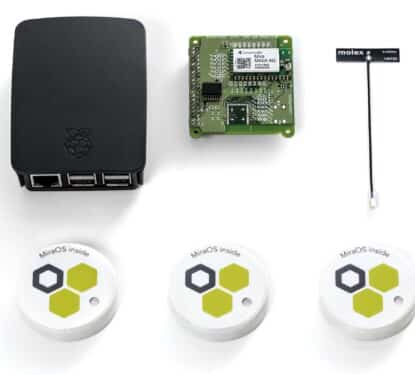In 2003, a 5-year-old Google began the gradual process of leasing 46-acres of land and buildings in Mountain View, California to create their headquarters. In 2013, the tech giant then leased a further 42-acres of adjoining land to develop the Bay View section of a now sprawling campus. Over this 88-acre estate, the firm has installed and developed numerous smart technologies and innovative design features, as well as energy generation and efficiency systems. However, when Google, through its subsidiary Sidewalk Labs, tried to redevelop just 12-acres of public land in Toronto’s Quayside district, they were met with citizen resistance that ultimately shutdown the project.
“Sidewalk’s far-reaching proposal promised modular buildings built to Passive House standards and called for code and zoning changes to allow for what it called “radical mixed use” within each building, with compliance maintained by sensors rather than by human inspection. The public realm was to be ‘vibrant and usable year-round,’ thanks to heated sidewalks and retractable canopies guided, of course, by sensors,” said architecture critic, Alex Bozikovic. “But ‘the digital layer,’ as Sidewalk called it, immediately generated headwinds. In Toronto, the conversation soon became all about data: who would gather it, who would use it, and how. Sidewalk, and presumably Alphabet, wanted quasi-governmental powers in this respect.”
Developing smart technology in an 88-acre private campus is easier than developing a 12-acre public neighborhood, at least for a private corporation. Technical proposals for the Google campus have been a marketing exercise focused on staff retention, talent acquisition, and public relations, but technical proposals in the Toronto Quayside project became hot topics of political debate and the target of activism. Falling somewhere between a private smart city and a public campus, Sidewalk Labs’ Toronto project faced far more criticism than would be expected in a government-led smart city project or a private campus development with the same technology.
“Sidewalk Labs’ Toronto project is not a smart city,” former BlackBerry executive Jim Balsillie wrote in a 2018 op-ed for the Globe and Mail. “It is a colonizing experiment in surveillance capitalism attempting to bulldoze important urban, civic, and political issues. Of all the misguided innovation strategies Canada has launched over the past three decades, this purported smart city is not only the dumbest but also the most dangerous.”
For a corporation to take on the development and operation of a public neighborhood they must also develop the political abilities that have been used to run cities for centuries. To face this challenge, Google appointed Daniel Doctoroff, former deputy mayor of New York, as CEO of Sidewalk Labs, and many of the firm’s key hires had worked under Doctoroff and former NYC mayor Michael Bloomberg. The team won over Canadian president Justin Trudaeu and district authorities, Waterfront Toronto, before releasing a carefully thought-out and highly-compelling proposal to the public. Google had played the political game with its vast resources but still failed to get this pilot project over the line.

What does the failure of Sidewalk Labs’ project tell us about the future role of corporations in smart cities? Can a corporation, particularly a data-driven tech giant, ever fully operate a smart city or district in the Western world? And, can a government or municipal authority ever realize the full potential of smart cities without significant involvement from tech giants?
“The ‘smart city’ movement asks new questions about the role of private actors in urban governance. Smart technology providers, because of their unique position, influence policymaking through their products and services. Yet, the effect of this role on public values remains unaddressed,” reads a 2021 paper by Astrid Voorwinden. “The risks privatization poses for public values have to be reassessed, in light of the issue of vendor lock-in and the value-embedding capacity of technology. To mitigate such risks, data protection legislation is insufficient: the wider notion of ‘publicization’ —namely the extension of public norms to private actors acting for public purposes— needs to be re-examined in the context of the smart city.”
With no solution to the public resistance, and the world distracted by COVID, Sidewalk Labs officially canceled the project in May 2020 and reframed their offering into three distinct product and service groups. Building Innovation - promising more “adaptable, sustainable, affordable, vibrant vertical development” and headed by mass timber factories, the Mesa smart buildings toolkit, and development planning platform Delve. Mobility - providing insights and technologies for parking, street design, and freight management and headed by the Pebble parking sensor. And, sustainable Infrastructure - claiming “dramatic carbon reductions” through greener power grids and thermal, waste, and stormwater systems.
After a period of reassessment and after the unfortunate news that Doctoroff, the company’s CEO, would be stepping down from his position due to health reasons, the decision was made to fold Sidewalk Labs back into Google. As part of the restructure, Alphabet, announced that it would spin-off a new start-up called Sidewalk Infrastructure Partners (SIP). SIP will focus on innovative infrastructure projects, including the design and construction of specialized roads for self-driving cars, smart grid projects, and 5G networks. In February 2022, the new company then announced it had raised US$400 million from StepStone Group, raising the value of the startup to US$1.25 billion and into unicorn status.
“SIP is set up in an unusual way for a startup, operating sometimes as a sort of venture capital firm and other times as an operator building projects itself. This allows it to pursue a wider range of projects”, said Jonathan Winer, SIP’s co-founder and co-chief executive officer when announcing the opening of the first stretch of 40-mile smart highway between Detroit and Ann Arbor. Acting as a venture capitalist, SIP has also invested $100 million in a California grid-edge project that uses smart thermostats and plugs to compensate customers for reducing their energy use at times of high demand. After its failed experiment as an urban developer and operator, Sidewalk Labs, in its various new forms, will settle back into the growing market of smart city solution providers.
The future of cities is in digital technology and technology giants are best positioned to serve that development but they are not trusted enough to govern public space independently —a contradiction we could call “The Sidewalk Paradox”. Only the lack of public trust in data-driven corporations stopped the Toronto project, and it would likely prevent any similar projects (in the West) in the foreseeable future. While tech firms can dazzle staff and talent with sprawling campuses full of smart technology, once they step onto the sidewalk of ‘the city’ they are faced with a very different political and user acceptance landscape that gives them a ‘trust handicap’.
If Google, with all their resources and prominent New York politicians, couldn’t find a way, then maybe all tech companies will have to settle for a supporting role in the evolution of our smart cities.



